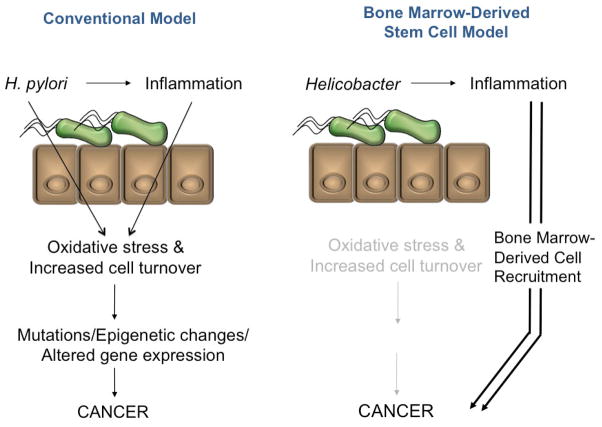Figure 2.
In the conventional model of H. pylori-associated carcinogenesis (left), the bacterium and associated inflammatory response stimulate increased cellular turnover and oxidative stress that promote oncogenic mutations, epigenetic changes and altered gene expression in epithelial cells. An alternative model (right) implicates Helicobacter species as the initiator of a chronic inflammatory response that recruits bone marrow derived cells to the gastric mucosa, contributing directly to the gastric neoplasm.

